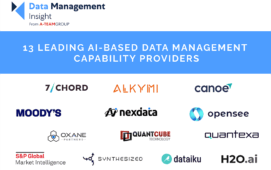Data management solutions are receiving buy in from top level management because of the requirement to assess risk exposures in real-time and react to business opportunities and challenges, said Philippe Ruault, head of clearing, settlement and custody products at BNP Paribas, at last week’s SunGard City Day in London. Risk management has become much more of a competitive differentiator in the post-crisis world and a shared data infrastructure has become a pre-requisite to the performance of complex real-time risk calculations, agreed Frederic Colette, head of operations at Newedge Group.
Ruault indicated that his own firm has focused on bolstering its ability to assess counterparty risk exposure in reaction to developments in the market such as the fall of Lehman Brothers. This is in part to protect the firm, but also to be enabled to offer credit to clients in a more timely manner by assessing their exposures in real time.
“BNP Paribas’ status as a general clearing member (GCM) means that we must be careful about the clients we deal with and it is therefore better to have intraday data available to assess and be able to accept new clients,” he explained.
Colette noted that due to the potential complexity of client investments across a range of asset classes, data needs to be aggregated at the client portfolio level and in order to achieve this, a robust IT infrastructure is required. Newedge has therefore invested in a suite of systems to provide a holistic view of the data cross asset class, which has also resulted in a better relationship with regulators as well as clients. “The more you can demonstrate you are in control of your data and your business, the better chance you have of a good relationship with regulators,” said Colette.
BNP Paribas is now “investing heavily” in its risk infrastructure, according to Ruault, and it has assessed a number of third party providers in order to determine the best of breed solutions for certain areas. The French custodian has, however, decided to build out its own internal technology platform for risk exposure monitoring purposes, although Ruault indicated that it is using a SunGard platform for derivatives risk calculations.
Colette issued a warning to those potentially investing in their data architectures and risk monitoring capabilities to take note of volume increases in data in the future and the potential velocity of this data. “The more we invest in real-time capabilities for risk calculations now, the less cost it will be to meet compliance requirements in the future,” he concluded.
Subscribe to our newsletter



